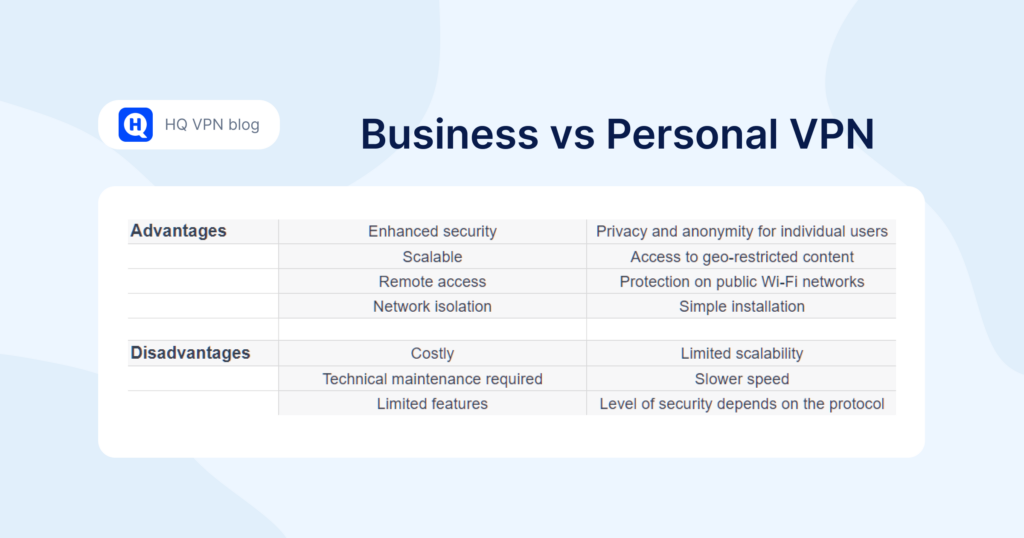

Types of VPNs Decoded: Finding the Perfect Match for Your Privacy Needs

Are you searching for the perfect type of VPN service that meets your specific needs? With so many options available, it can be overwhelming to decide which one is right for you. Understanding the different types of VPNs is crucial in making an informed choice.
In this blog post, we will explore the various types of VPNs and help you find the best-suited solution for your online privacy and security. Let’s dive in!
Types of VPNs
When it comes to VPNs, it’s important to understand that the term “types of VPN” refers to the different categories or classifications of VPNs, rather than specific brand names. VPNs can be differentiated based on three key factors: the type of protocol they use, their price range, and their purpose of use. Let’s delve into each of these aspects to gain a better understanding of the diverse landscape of VPN services available today.
VPN type: based on a protocol
VPNs can employ different types of protocols to establish secure connections between your device and the VPN server. Each protocol has its own strengths and weaknesses, so let’s explore the main types.
OpenVPN
This protocol is highly popular and widely used due to its robust security features. It utilizes open-source technology, making it transparent and subject to regular scrutiny for vulnerabilities. OpenVPN is compatible with various operating systems and offers robust encryption, ensuring your data remains secure.
This protocol is versatile and suitable for a wide range of activities. Its strong security features make it ideal for general browsing, online banking, streaming content, and maintaining privacy during file sharing.
L2TP/IPSec
Layer 2 Tunneling Protocol (L2TP) and Internet Protocol Security (IPSec) create a secure VPN connection. L2TP provides the tunnel, while IPSec handles the encryption. This protocol is built into most devices, making it convenient to set up.
Due to its compatibility with most devices, L2TP/IPSec is a good choice for mobile devices. It can be particularly useful for activities such as secure mobile browsing, accessing geo-restricted content, and making VoIP calls.
PPTP
Point-to-Point Tunneling Protocol (PPTP) is one of the oldest VPN protocols. It is supported by various devices and operating systems, making it widely accessible. PPTP is relatively fast but has weaker encryption compared to other protocols. Its security has been compromised in the past, so it may not be the best choice for those seeking high-level security.
While PPTP is not the most secure option, it is known for its speed and compatibility. It can be useful for activities like streaming non-sensitive content, accessing region-restricted websites, or gaming where low latency is crucial.
SSTP
Secure Socket Tunneling Protocol (SSTP) is developed by Microsoft and is primarily compatible with Windows devices. It uses SSL/TLS encryption, making it highly secure. SSTP can bypass firewalls and is known for its stability. However, since it’s not as widely supported as other protocols, it may have limited availability on some devices.
SSTP, with its strong encryption and ability to bypass firewalls, is well-suited for activities that require high security, such as accessing sensitive business networks or conducting confidential transactions.
WireGuard
WireGuard is a relatively new and lightweight VPN protocol known for its simplicity and speed. It offers high-performance encryption and is designed to be efficient on various devices and platforms. WireGuard is gaining popularity, but it may not be as widely supported as other protocols just yet.
WireGuard’s lightweight and efficient design makes it an excellent choice for activities that prioritize speed and efficiency. It can be beneficial for activities like streaming high-definition content, online gaming, or using resource-intensive applications.
VPN type: based on the purpose of use
VPN services can be broadly categorized into two types based on their purpose of use: business VPNs and personal VPNs. Let’s delve into each type and explore its characteristics, advantages, and disadvantages.
Business VPN
Business VPNs are specifically designed to meet the needs of organizations. They prioritize secure remote access for employees and the protection of sensitive corporate data.
Business VPNs offer enhanced security through robust encryption and advanced security protocols. They create a private network, isolating it from the public internet, which adds an extra layer of protection against cyber threats.
These VPNs also enable employees to securely access corporate resources from remote locations, promoting productivity and flexibility.
However, business VPNs can be costly in terms of infrastructure, maintenance, and licensing. Setting up and managing a business VPN may also require technical expertise and ongoing maintenance.
Also, while they prioritize security for corporate data, they may have limited features or privacy protections for individual employees.
Personal VPN
Personal VPNs are designed for individual users seeking online privacy, data protection, and unrestricted internet access.
Personal VPNs prioritize privacy and anonymity by masking your IP address, encrypting your internet traffic, and providing anonymity. They also allow you to access region-restricted content and bypass censorship or streaming service limitations.
Personal VPNs are particularly useful when using public Wi-Fi networks, as they encrypt your data and protect against potential eavesdropping or hacking attempts. They are generally user-friendly, with easy installation and configuration on various devices and platforms.
However, personal VPNs may have limitations in terms of scalability for businesses or organizations with a large number of users. They may also introduce some slowdowns in internet speeds depending on the VPN service and server location. The level of security provided by personal VPNs can also vary depending on the specific service and protocols used.
TL;DL: Business vs personal VPN

VPN type: based on the price
VPNs can also be categorized based on their pricing models, which include premium, budget, and free options. Let’s explore each type, its characteristics, benefits, and drawbacks.
Premium VPNs
Premium VPNs are typically subscription-based services that offer a wide range of features and robust security. These VPNs often come with a higher price tag, but they provide several benefits.
Advantages:
- Strong security. Premium VPNs prioritize user privacy and employ advanced encryption protocols, ensuring that your online activities and data remain secure.
- Wide server network. They usually have a large network of servers spread across various locations, allowing for better connectivity options and enhanced browsing speeds.
- Enhanced performance. Premium VPNs often offer faster speeds and higher bandwidth capacities, resulting in smoother streaming, gaming, and file-sharing experiences.
- Additional features. They may offer additional features like ad blocking, malware protection, and dedicated customer support.
Disadvantages:
- Cost. Premium VPNs are usually more expensive compared to other options, requiring a financial commitment for long-term use.
- Potentially unused features. Some users may not require all the advanced features offered by premium VPNs, making it an unnecessary expense.
Budget VPNs
Budget VPNs are more affordable options that still provide basic security and privacy features. While they may have some limitations, they can be suitable for many users.
Advantages:
- Affordability. Budget VPNs are cost-effective and can provide the essential security and privacy features needed for everyday use.
- Simplicity. They often have user-friendly interfaces and straightforward setups, making them accessible to users without technical expertise.
- Decent security. Although not as advanced as premium VPNs, budget VPNs still offer encryption and protection for your online activities.
Disadvantages:
- Limited features. Budget VPNs may lack some advanced features like a wide server network, dedicated customer support, or additional security measures.
- Slower speeds. Due to the lower cost, budget VPNs may have slower speeds and limited bandwidth, resulting in potential performance issues.
- Restricted server locations. They may have fewer server locations available, which could impact your ability to bypass geo-restrictions or access specific content.
Free VPNs
Free VPNs, as the name suggests, do not require any payment but come with certain trade-offs. It’s important to approach free VPNs with caution.
Advantages:
- Cost-free. Free VPNs do not require any financial commitment, making them an attractive option for users on a tight budget.
- Basic privacy protection. While not as comprehensive as premium or budget VPNs, free VPNs still offer basic encryption to protect your online activities.
Disadvantages:
- Limited bandwidth and speed. Free VPNs often impose restrictions on bandwidth and can have slower speeds due to a large number of users sharing limited resources.
- Advertisements and data collection. To support their operations, free VPNs may display advertisements or collect and sell user data, potentially compromising privacy.
- Security concerns. Some free VPNs may have weak encryption, logs of user activities, or even malicious intentions, raising security risks.
Keep in mind that while free VPNs can be tempting, it’s crucial to thoroughly research their reputation and privacy policies to ensure your data remains secure and your privacy is protected. If you want to learn more about the differences between paid and free VPNs, be sure to check out this article.
Conclusion
Understanding the different types of VPNs is essential for selecting the right solution that aligns with your specific needs, whether personal or business-related. We explored various factors to consider when choosing a VPN, including the purpose of use, security and privacy features, scalability, cost, compatibility, speed, and reputation.
Regardless of the type of VPN you choose, it is crucial to prioritize security, privacy, and reliability. Look for reputable VPN providers that prioritize user protection, offer strong encryption, maintain a strict no-logs policy, and have a proven track record of delivering reliable performance. Try HQ VPN for free and enjoy the benefits of enhanced security, privacy, and unrestricted access to the online world.
Stay safe, protect your data, and enjoy the freedom that a reliable and secure VPN can provide.



